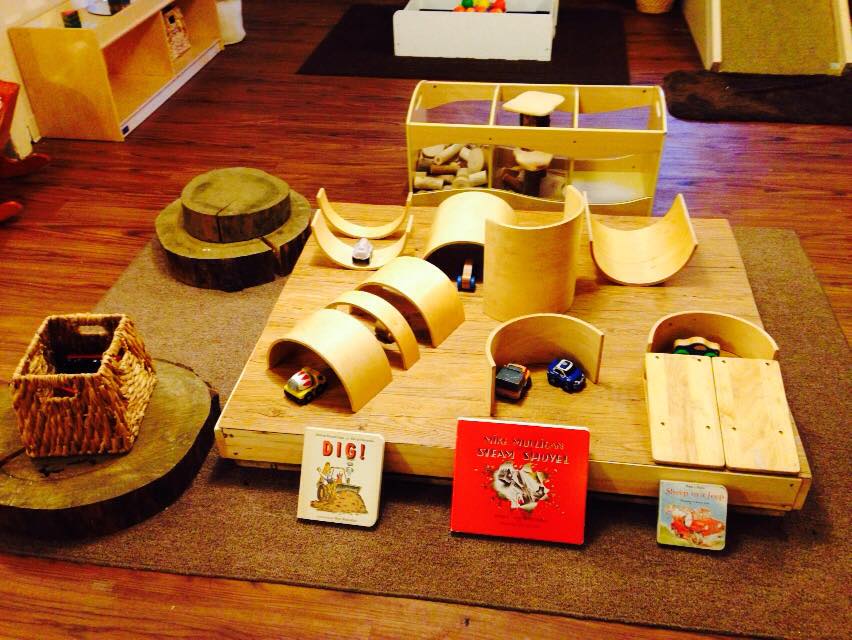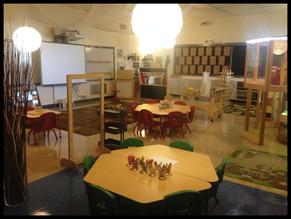The Environment as the Third Teacher
The learning environment or classroom plays a key role in the Reggio Emilia approach. Children thrive in environments that are suited to their interests and developmental stages. In the Reggio Emilia approach the environment is viewed as a place that is welcoming, authentic aesthetically pleasing, culturally representative of community, embraces nature and filled with purposeful materials. The layout of the environment promotes relationships, communication, collaboration, and exploration through play. Materials are thoughtfully added to the environment to promote creativity, thinking and problem solving skills, questions, experimentation and open-ended play.
"Reggio has influenced the ways in which school environments are interpreted, prepared and, sometimes, built; the ways in which educators “follow” the development of children through tangible efforts of documentation; the ways in which children are viewed more as capable and competent and less as needy; the ways in which educators feel and act in partnership with children and families, and the ways in which relationships with children, colleagues, families, and the community are tended to with pleasure. In short, Reggio’s belief that school is not preparation for life, but that school is life has begun to shape a different style of education within schools for young children throughout the world. This shift is often slow and gradual, and difficult to observe, as educators become more familiar with the belief systems in Reggio Emilia that support their unique work in education."-North American Reggio Emilia Alliance
"Reggio has influenced the ways in which school environments are interpreted, prepared and, sometimes, built; the ways in which educators “follow” the development of children through tangible efforts of documentation; the ways in which children are viewed more as capable and competent and less as needy; the ways in which educators feel and act in partnership with children and families, and the ways in which relationships with children, colleagues, families, and the community are tended to with pleasure. In short, Reggio’s belief that school is not preparation for life, but that school is life has begun to shape a different style of education within schools for young children throughout the world. This shift is often slow and gradual, and difficult to observe, as educators become more familiar with the belief systems in Reggio Emilia that support their unique work in education."-North American Reggio Emilia Alliance


